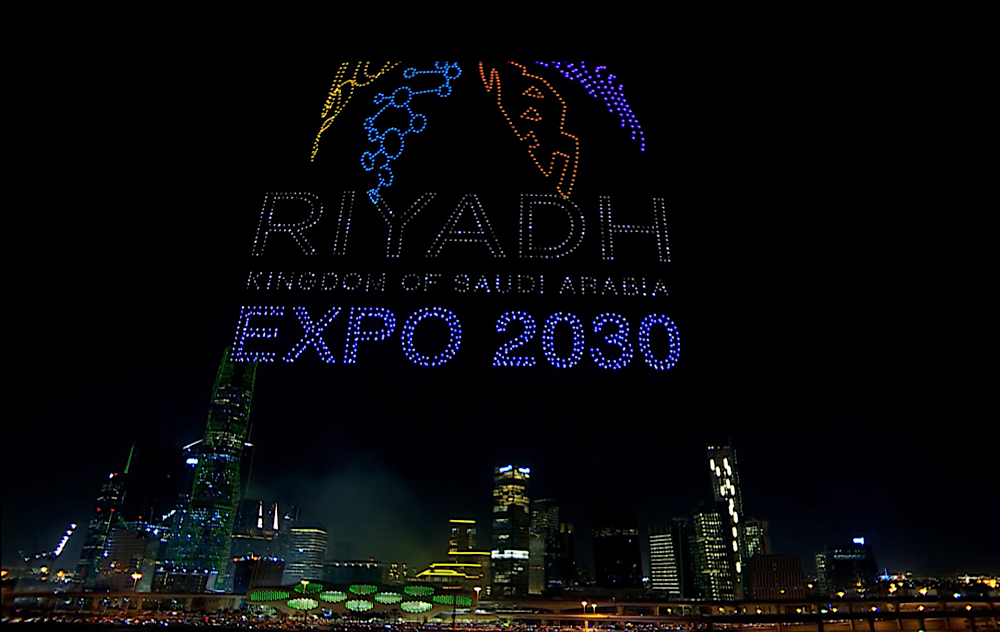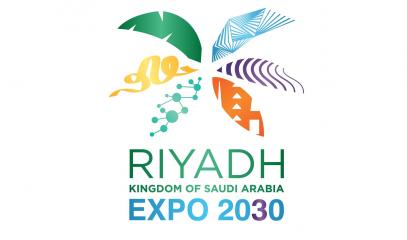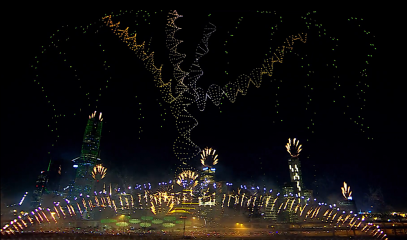Riyadh gets Expo 2030, the crowning achievement of bin Salman's 'Vision'
The Saudi capital gets 119 votes out of 165, crushing the competition, Busan (29) and Rome (17). This symbolises the plan of reforms and development pursued by the Saudi Crown Prince Mohammad bin Salman, which goes from Neom to the new Kaaba, overshadowed, however, by questions about human rights and freedoms. The ambitions do not stop there nor the competition with the Emirates (and Qatar) as Saudi Arabia seeks to host the 2034 FIFA World Cup.
Riyadh (AsiaNews) – Expo Riyadh 2030 is the culmination of a project and a journey that began years ago centred on that year right from the start.
Assigning the universal exhibition to Saudi Arabia is the last piece in the "Vision" promoted by Saudi Arabia’s Crown Prince Mohammed bin Salman, the kingdom’s real strongman, who is working to free the country from its dependence on oil by opening it up to sport, entertainment, art and culture.
This would have been almost unthinkable just a decade ago, but has taken shape and become a reality despite its dark side, such as violations of human rights and freedoms. In fact, the path of reforms in some areas such as religious freedom and the role of women still appears to be a façade.
Still, economic and geopolitical gains, like yesterday’s, with the Saudi capital getting the right to host Expo in 2030, are tangible enough.
Of the two other cities in the running, South Korea’s Busan was Riyadh’s main rival and so the main loser, while Rome indolently relied on in its ancient past with few prospects for the future.
The idea and engine behind Riyadh’s candidacy were based on "Vision 2030", the plan pushed by Mohammed bin Salman, with Expo 2030 as the final stage of a rhetoric exalting a young and vibrant society.
Yesterday’s vote at the Bureau International des Expositions (BIE) in Paris saw 165 delegates (out of 182 member states) cast a secret ballot. Saudi Arabia got 119 preferences, crushing the South Korean and Italian bids who won 29 and 17 votes respectively.
Before Riyadh, the next Expo will be held in 2025 in Osaka, Japan, while the previous one was in Dubai, a sign of Asia’s dominance, and proof, if there ever was any need for it, of the ongoing competition for leadership between the Saudis and the Emirates.
The kingdom said it would allocate US$ 7.8 billion to host the event, marking its victory yesterday evening with a firework display from a skyscraper that lit up Riyadh.
For many observers, such a triumph is the icing on the cake for the crown prince’s "Vision 2030".
As Saudi Foreign Minister Prince Faisal bin Farhan Al Saud put it: "We had a fantastic team of ministers going around the world (not to mention Cristiano Ronaldo’s testimonial), engaging our counterparts in a very, very active way to understand what they expected, what they were looking for and what we should deliver in order to gain their trust.”
After all, Saudi Arabia is a thriving and booming economy, ranging from the energy sector to architecture and the environment, the mirror image of an ambitious nation, which has vied for dominance with the United Arab Emirates, both an ally and a rival, in the Middle East in various domains, from entertainment to finance.
Hence, Expo’s "vision" reinforces the Saudi capital's ambition of becoming a global hub, a driving force for a country that is no longer just a stronghold of Sunni Islam and the custodian of the two holy places for Muslims, Makkah and Madinah.
This project looks beyond the Vision’s date and seeks to continue and grow, as evinced by the country’s still unofficial bid to host the 2034 FIFA World Cup.
At the heart of this project are finance and banking, environment, sustainable development, and entertainment (with huge investments in football and movie industry, albeit with extensive censorship in "sensitive" areas such as homosexuality and religion).
This project includes ambitious projects like Neom, the city of the "future" on the shores of the Red Sea, ready to become the home of up to nine million people in an area 34 sq. km with no cars, roads and emissions, built as an immense stretch of buildings 500-metre tall, 170 kilometres long and just 200 metres wide, which will go from the mountains to the sea.
Such a place will be built in the desert from scratch where everything will have to be eco-sustainable and reachable on foot in a few minutes, but also with the possibility of moving from one end to the other in 20 minutes on a high-speed train.
Never mind if, in order to achieve this, entire Bedouin communities will be driven out, forced into silence, and critics who oppose it jailed or worse, because Neom also has its martyrs.
In addition to the city of the future on the coast, Mohammed bin Salman's "grandeur" goes as far as building the Mukaab, a "new Kaaba", a gigantic, 400-metre-long, wide and deep cube in the heart of the Riyadh of the future.
In addition to hosting hundreds of thousands of residents, along with luxury hotels, museums and entertainment venues, the Saudi capital will become the symbol of "Vision 2030".
The Mukaab is the ideal continuation of Neom, but it will touch more closely Saudis’ lives because its very structure points to the nation’s holiest of holies, the geometric structure of the Kaaba, the black building in the centre of Makkah around which Muslim pilgrims converge.
Already the new Kaaba is the object of irony because it is a sign of the crown prince’s "devotion" to the “money god” more than to Allah and Wahhabi Islam.
The project will create more than 25 million sq. m. of floor space, with more than 104,000 residential units, 9,000 hotel rooms and more than 980,000 sq. m of retail space, as well as 1.4 million sq. m of office space, 620,000 sq. m dedicated to leisure, and 1.8 million to community activities.
Here, too, the goal is to complete the work by the momentous year. In freeing the country from dependence on oil, the basis of "Vision 2030", Mohammed bin Salman has put his hands, albeit carefully, on the radical structure of the Muslim faith and the country’s social life.
The reforms introduced in 2019 have touched social life and people’s rights. This includes allowing women to drive and go to stadiums (under certain conditions), strengthening the entertainment industry and new technologies, as well as touching the religious sphere with a gradual move away from Wahhabism.
Yet, the arrests of high-ranking officials and businessmen, the crackdown on activists and critical voices, and the Khashoggi affair have raised questions about how real the changes are.
One notion that is missing from the picture is religious freedom which, as Pope Benedict XVI put it, is the true engine that “will permit the human person to attain fulfilment and will thus contribute to the common good of society.”
27/06/2023 16:16
18/09/2021 14:40









.png)










